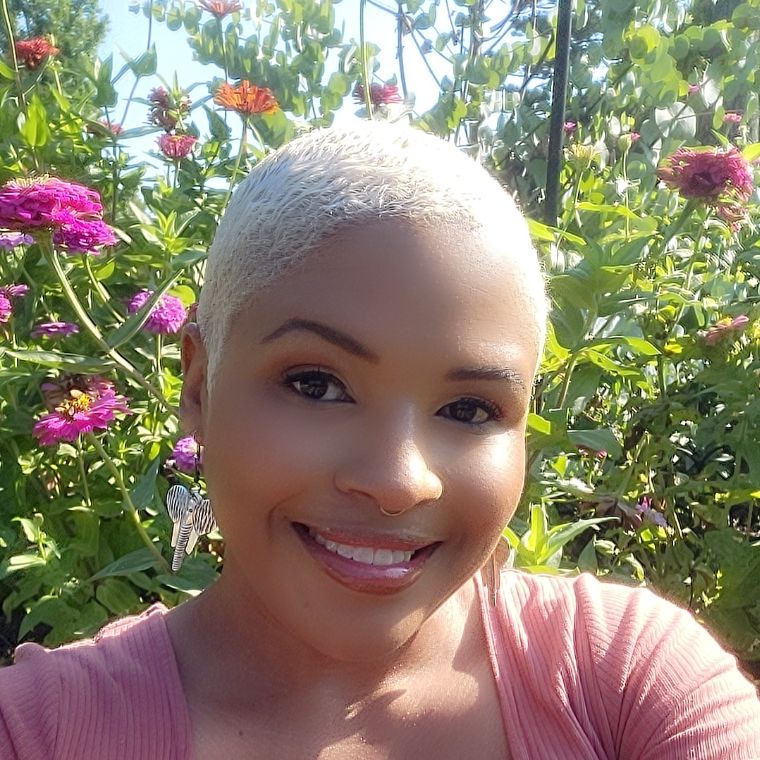Exploring Treatment Choices for Relationships Issues in Charlotte
Exploring relationship therapy in Charlotte means choosing formats that fit your life—whether you prefer in-person sessions in areas like Uptown, South End, or Dilworth, or teletherapy if you’re balancing commutes on I‑77, I‑85, or the I‑485 loop. Individual therapy can help you clarify patterns and goals, while couples sessions focus on communication and conflict, and group options offer peer support for shared challenges. Many providers are near LYNX Blue Line stops in NoDa and University City or along key CATS bus routes, which can ease access if parking or rush-hour traffic is a concern. Teletherapy can be especially helpful if you live farther out in Ballantyne, Steele Creek, or around Lake Norman and want to avoid peak-hour congestion. Consider your schedule, privacy needs, and whether you’d benefit from structured approaches like EFT or Gottman Method when selecting a format.
MiResource makes this easier by letting you filter Charlotte-area providers by therapy approach, insurance accepted, price range, and real-time availability, including evening or weekend slots. You can also filter for in-person locations near your neighborhood or transit line, or choose fully virtual care for maximum flexibility. The platform highlights clinicians who offer individual, couples, or group sessions, so you can compare formats side by side. Profiles include specialties in relationship concerns like trust, communication, and life transitions, helping you match goals with expertise. Start with your preferences—format, location, and coverage—and use MiResource’s filters to quickly narrow options and book care that fits your routine.
Local Programs and Community Partners
Charlotte offers a strong network of local partners to help people nurture healthier relationships alongside MiResource’s therapist directory. Safe Alliance provides advocacy, crisis support, and group programs in Uptown, while Mecklenburg County Community Support Services connects residents to domestic violence and healthy-relationship education across neighborhood community centers. The Relatives in Dilworth supports youth and families working through conflict and communication challenges, and the Latin American Coalition on Central Avenue hosts culturally responsive workshops for couples and parents navigating change. Charlotte-Mecklenburg Library branches, including ImaginOn near First Ward, frequently host free talks on co-parenting, communication, and emotional wellness, making support accessible from South End to NoDa.
Peer and advocacy communities also play a big role, with PFLAG Charlotte and Time Out Youth offering affirming spaces for LGBTQ+ individuals and families to build trust and understanding. The YMCA of Greater Charlotte—such as the Dowd Y near the Rail Trail—runs family-strengthening classes and meetups that encourage connection beyond therapy sessions. Atrium Health and Novant Health periodically offer prenatal, parenting, and relationship-skills classes, and many groups gather informally in places like Freedom Park or Romare Bearden Park to continue conversations in supportive settings. Together, these programs complement professional care by creating everyday opportunities to learn, practice, and sustain healthy relationship skills throughout Charlotte.
Urgent Help for Relationships Issues in Charlotte
If you’re in immediate danger, call 911 or go to the nearest ER: Atrium Health Carolinas Medical Center Emergency Department (704-355-2000) or Novant Health Presbyterian Medical Center Emergency Department (704-384-4000). For 24/7 crisis counseling, call or text 988. In Charlotte/Mecklenburg, contact Alliance Health’s 24/7 Access and Crisis Line at 800-510-9132 for mobile crisis response and urgent behavioral health support; you can also reach Atrium Health Behavioral Health’s Help Line at 704-444-2400. The Hope4NC Helpline is available statewide at 855-587-3463. If you need same-day care and are safe to travel, use a nearby urgent care (Atrium Health or Novant Health-GoHealth Urgent Care locations) or head to a behavioral health urgent care if directed by the crisis lines.
Key Insights Into Relationships Issues
Relationships shape how we connect, communicate, and feel supported, and challenges can show up as frequent misunderstandings, ongoing conflict, trust issues, or feeling distant and lonely. These stressors may also bring symptoms like anxiety, low mood, trouble sleeping, or physical tension, impacting daily life in Charlotte and beyond. Understanding what’s happening in your relationships helps you spot patterns, improve communication, and take steps toward healthier, more fulfilling connections.
Spotting Potential Warning Signs
It can be hard to tell when relationship stress is becoming something that needs extra support, but you don’t have to figure it out alone. If you’re in Charlotte and notice some of the signs below, reaching out early can make things feel more manageable and hopeful.
- Frequent arguments that never get resolved, or tension that lingers even after you stop talking about the issue
- Feeling like you’re walking on eggshells, hiding your true thoughts or feelings to avoid conflict
- Growing distance—spending less quality time together, less affection, or losing interest in each other’s lives
- Trust issues, such as secrecy, lying, or constant checking of phones and social media
- Put‑downs, criticism, or dismissive comments that make you feel small, guilty, or ashamed
- Controlling behaviors or intense jealousy (for example, telling you who you can see or what you can do)
What Contributes to Relationships Issues
Relationship challenges can affect anyone in Charlotte, and they’re not a sign of personal weakness. They often arise from a mix of factors that interact over time. With support and understanding, relationships can heal and grow. You’re not alone, and help is available.
- Biological: family traits that influence mood and temperament; changes in hormones or sleep; health conditions that affect energy and patience.
- Psychological: past trauma or painful breakups; stress, anxiety, or depression that shape how you communicate; learned patterns from childhood.
- Environmental: money or job pressures in Charlotte; long commutes and limited time together; major life changes like moving, parenting, or caregiving.
How Relationships Issues Shapes Daily Life
Healthy relationships shape how we show up each day in Charlotte—at home, at work, and in our neighborhoods. When connections feel strained, stress can spill into routines, sleep, and motivation, making even simple tasks feel harder. Building skills like communication, boundaries, and trust can ease tension and bring more balance. Reaching out for support here in Charlotte can help you strengthen relationships and feel more grounded day to day.
- Work performance and teamwork
- School focus and attendance
- Family dynamics and parenting
- Friendships and social life
- Physical health, sleep, and energy
- Mood, stress, and anxiety
- Motivation and daily routines
Effective Treatments for Relationships Issues
Healthy relationships can be strengthened with proven therapies available in Charlotte. These approaches help partners communicate clearly, repair trust, and rebuild connection with guidance backed by research. Many couples notice meaningful progress within weeks, and skilled clinicians can tailor care to your goals. Reaching out is a powerful first step toward the relationship you want.
- Emotionally Focused Therapy (EFT): An attachment-based approach that reduces conflict cycles and increases emotional safety and bonding; strongly supported by outcome research.
- Gottman Method Couples Therapy: Uses assessment and targeted exercises to improve communication, manage conflict, and build friendship and trust through evidence-based skills.
- Integrative Behavioral Couple Therapy (IBCT): Combines behavior change with acceptance strategies to reduce gridlock and increase collaboration on long-standing issues.
- Cognitive Behavioral Therapy (CBT) for Relationships: Teaches partners to identify unhelpful thoughts, practice problem-solving, and use calm communication to prevent escalation.
- Family Systems Therapy: Addresses patterns involving extended family or co‑parenting, improving boundaries, roles, and teamwork to support the couple’s goals.
Quick Answers for Relationships Therapy in Charlotte
1. Can Relationships Issues happen to anyone?
Yes—relationship challenges can affect people of any age, gender, or background in Charlotte and beyond. Experiencing difficulties doesn’t mean anything is wrong with you; it’s a common part of being human. Factors like stress, big life changes, trauma history, health or financial strain, and limited support can increase risk or intensity. Supportive therapy in Charlotte can help you build healthier patterns and feel more connected.
2. Is Relationships Issues just stress or something more serious?
Everyday stress comes and goes, while relationship problems that are intense, frequent, or long‑lasting—like constant arguments, shutdowns, jealousy, or loss of trust—can signal something more serious. If the strain has lasted weeks or months, affects work, sleep, health, or safety, or leaves you feeling stuck, isolated, or hopeless, it’s more than temporary stress. Effective relationship therapy is available in Charlotte and can help rebuild communication, trust, and connection. You don’t have to navigate this alone—support is here and it works.
3. What are some misconceptions about Relationships Issues?
Many people believe that “good” relationships are effortless, but even strong partnerships take ongoing communication, empathy, and repair—needing support is normal. Another myth is that conflict means you’re with the wrong person; in reality, respectful conflict can deepen understanding when handled with healthy skills. Some think couples therapy is only for relationships in crisis, but in Charlotte many partners use therapy proactively to strengthen connection, build boundaries, and prevent problems. It’s also common to expect your partner to meet every emotional need; nurturing friendships, self-care, and community support helps relationships thrive.
4. Can Relationships Issues improve without treatment?
Yes—relationship stress can sometimes ease with time, changes in circumstances, or personal effort. Still, working with a therapist in Charlotte typically leads to better, faster outcomes, helps prevent old patterns from returning, and builds lasting communication and coping skills. Professional support offers tools and accountability that make improvements more durable and meaningful.
5. How do I talk about my Relationships Issues with family or friends?
It’s okay to share only what feels right—start small and direct: “I’m working on my Relationships Issues and wanted you to know,” or “I’d appreciate support by checking in once a week.” Set clear boundaries about what helps and what doesn’t: “Please avoid giving advice unless I ask,” and “I’m not ready to discuss details right now.” If they want to learn more, offer resources like MiResource listings for Relationships therapists in Charlotte, local workshops, or support groups. Remind yourself you’re not alone—many people in Charlotte are seeking healthier connections, and asking for support is a strength.
6. Who is qualified to diagnose Relationships Issues in Charlotte?
In Charlotte, relationship concerns are evaluated and treated by licensed mental health professionals such as Licensed Marriage and Family Therapists (LMFTs), Licensed Clinical Mental Health Counselors (LCMHCs), Licensed Clinical Social Workers (LCSWs), Licensed Psychologists, Psychiatrists (MD/DO), and Psychiatric Mental Health Nurse Practitioners (PMHNPs). LMFTs specialize in couple and family dynamics, while psychologists and psychiatrists can provide formal mental health diagnoses when needed. MiResource only lists qualified Charlotte providers who are properly licensed to deliver accurate diagnoses and safe, effective care.
7. What usually happens in a first therapy session for Relationships Issues?
In Charlotte, your first relationships therapy session typically starts with warm introductions and a brief overview of how sessions work. You’ll share a bit of personal and relationship history at a comfortable pace, so your therapist understands your background. Together, you’ll talk through your main concerns and what’s been most challenging. By the end, you’ll collaborate on clear, realistic goals to guide your work on your relationship moving forward.













